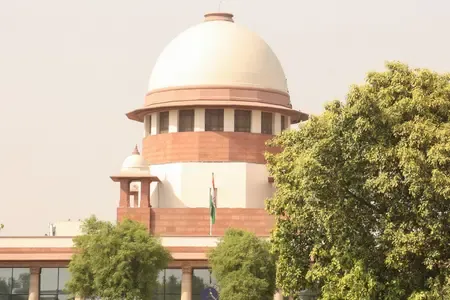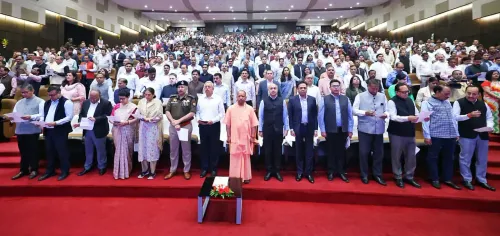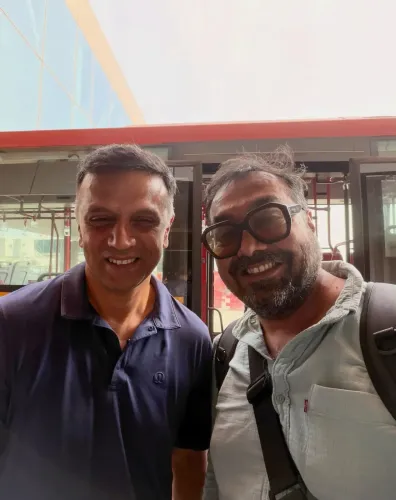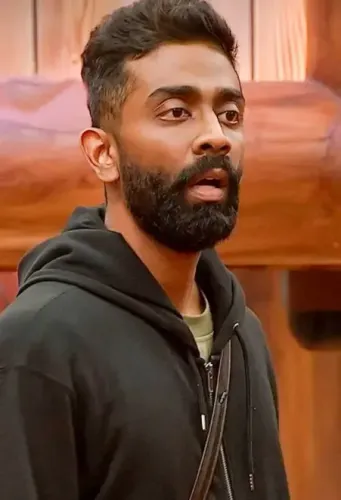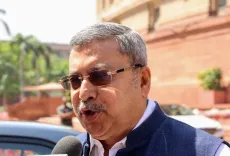Should Congress Rise Above Party Politics on National Issues?
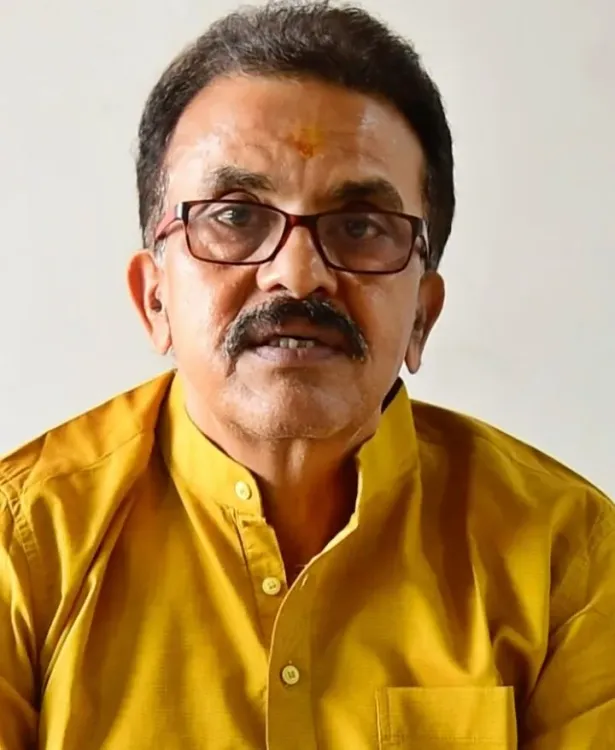
Synopsis
Key Takeaways
- Sanjay Nirupam defends Shashi Tharoor against Congress criticism.
- Calls for unity on national issues.
- Tharoor represents India on global platforms.
- Criticism within Congress highlights internal conflicts.
- Importance of recognizing talent within political ranks.
New Delhi, May 29 (NationPress) Shiv Sena leader Sanjay Nirupam criticized the Congress on Thursday for their unjustified attacks on MP Shashi Tharoor, asserting that such unfair remarks signify the deep-seated frustration within the historic party. He urged the Congress to transcend party politics, especially regarding national issues.
During a speech in Panama, as part of the Indian delegation, Tharoor indicated that India conducted a surgical strike across the Line of Control (LoC) in 2016 against a terrorist base, which elicited backlash from several Congress members.
Nirupam staunchly defended Tharoor, highlighting his role as a Congress MP currently leading one of seven parliamentary delegations dispatched by the Indian government to various countries.
He pointed out that Tharoor's mission is to reveal Pakistan's actions, lamenting that while representing India on the global stage, he faces criticism from his own party.
“When will Congress leaders recognize that on national issues, we must elevate above party politics? Shashi Tharoor is demonstrating greater maturity than many others in the party. He is engaged in Operation Sindoor outreach,” Nirupam stated in an interview with IANS.
He continued, “We avenged the terrorist attack in Pahalgam. We took retribution on behalf of our mothers and sisters by eliminating hundreds of terrorists.”
Nirupam emphasized that now, Indian Members of Parliament are articulating these operations on international platforms, gaining support for the nation.
“This is a significant and honorable responsibility on both national and international fronts. If the BJP-led government is assigning such a role to Shashi Tharoor, Congress should take pride in it. They should appreciate the BJP for recognizing talent within their ranks. Instead, Congress leaders are attempting to tarnish Tharoor’s reputation, revealing the profound frustration within the party,” he added.
Earlier, Tharoor's comments sparked sharp criticism from within Congress, with party leader Udit Raj branding Tharoor the “Super Spokesperson of the BJP.”
Congress spokesperson Pawan Khera also countered Tharoor's claims, referencing his own 2018 book ‘The Paradoxical Prime Minister’, where he critiqued the BJP’s “shameless exploitation” of the 2016 surgical strikes for electoral purposes.
The book explicitly noted that Congress had sanctioned several similar operations during its tenure but refrained from politicizing them.
Nirupam additionally reacted to recent statements from Bala Darade, Deputy Chief of the Nashik city unit of Shiv Sena (UBT), who threatened to blacken the face of Rahul Gandhi, the Leader of the Opposition in Lok Sabha, over his alleged remarks regarding Hindutva ideologue Vinayak Damodar Savarkar.
“It is a disgraceful moment for Shiv Sena (UBT) when Congress and Rahul Gandhi make such statements,” he remarked.
Nirupam emphasized that Veer Savarkar was a freedom fighter and a profound thinker who fought for India’s independence.
He criticized Rahul Gandhi’s alleged inappropriate comments, asserting that they do not represent Congress's ideology but rather that of leftists.
“When Indira Gandhi served as Prime Minister, she held Savarkar in high regard. If Rahul Gandhi does not cease his comments, and if Shiv Sena (UBT) genuinely embodies Bal Thackeray's legacy, they must respond. Failure to do so will indicate that Bal Thackeray’s influence is no longer present within them,” he concluded.

